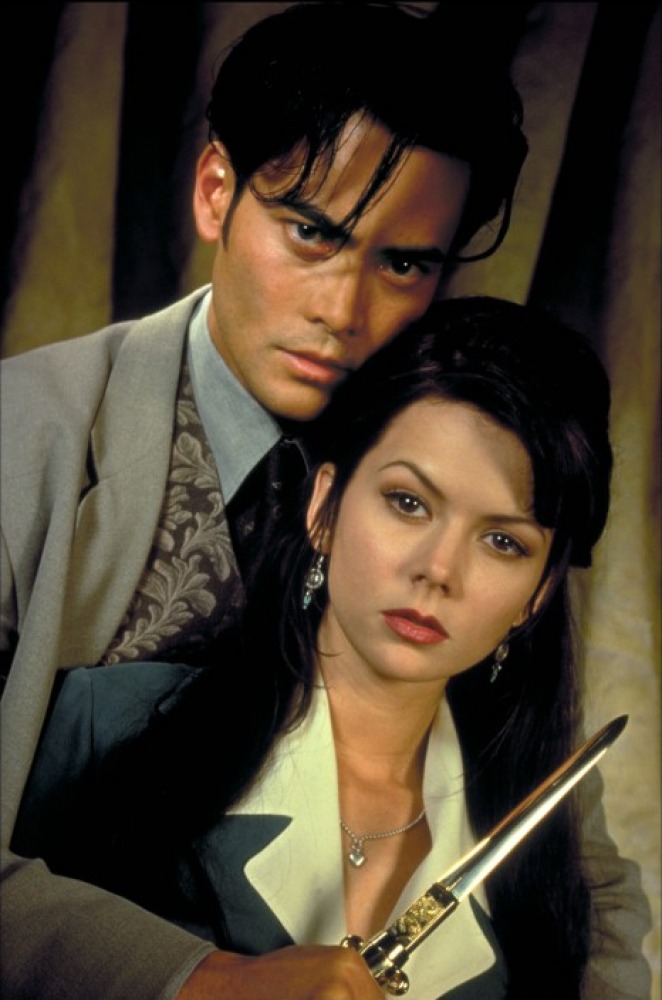An Interview with ‘Brotherhood of the Wolf’ star Mark Dacascos
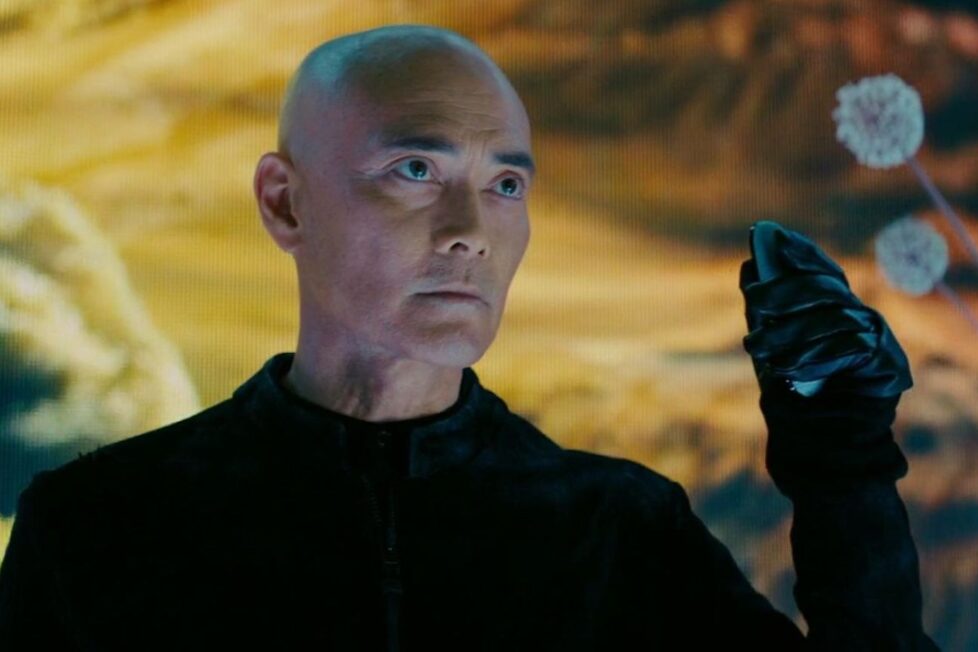

REMY DEAN: Hello, Mark, thank you very much for taking the time to talk to me.
MARK DACASCOS: You’re welcome, I’m happy to be here with you.
You can watch the entire Zoom call interview in the video embedded below, or continue reading the transcript underneath.
REMY: As we have limited time I’m just going to jump right in because you’ve had such a varied career, that we could probably talk all night, but I’m going to focus on a couple of things starting with what happens to be one of my favourite films… So, what is your abiding memory of working on Brotherhood of the Wolf?
MARK: In terms of on-camera, off-camera, length of time, story, people… certainly one of the most joyous productions I’ve ever been on. I’ve never been on a movie with so many different genres in the story. I was in France for five months, plus 16 or 18 different locations. Long shoots, but it was fun and, for all but one day, actually out in the elements on location. Only one day did I shoot in the studio. So, it was just a huge joyous adventure on camera, in the story, and then just preparing my best to do my character justice. A fantastic, huge rollercoaster ride from beginning to end.
REMY: You’ve worked with Christophe Gans more than once, first on Crying Freeman, which was probably the first film I noticed you in. Although, I did work a video rental shop in the ’90s when American Samurai was flying off the shelves, so I remember that one, but Crying Freeman really impressed me and likewise Brotherhood of the Wolf—both the same director. What was Christophe Gans like to work with, what directions did he give?
MARK: Christophe is very specific on everything and I think he does so much of his direction in the casting… I’ll share a little story. When we did Brotherhood of the Wolf, one of the actors was a little concerned because they weren’t getting any direction from Christophe, after three days of filming. I said, then you’re doing great because, having worked with him on Crying Freeman, Christophe only says something if he wants to steer you in a slightly different angle or to do something different, but if he’s not saying anything, just keep doing what you’re doing. I really feel like he takes a lot of time researching and finding the actors so that he doesn’t have to direct. In terms of Brotherhood of the Wolf, I remember the costumes and he had a hand in everything—this velvet and this colour and this and that—he is so hands-on and specific.
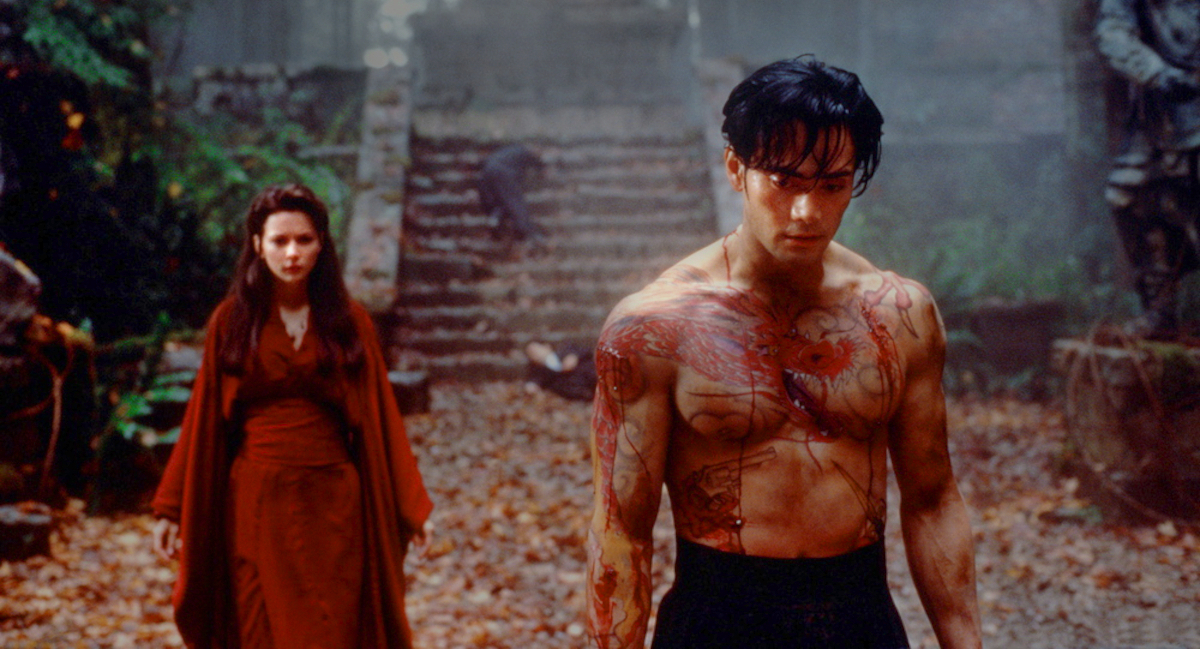
REMY: So, it’s mainly in the planning and then a lot of trust in the actors – you wouldn’t be there if he didn’t think you were doing it right…
MARK: Yeah, correct. For example—and my wife [Julie Condra] is here eavesdropping but she was the lead girl from Crying Freeman, playing Emu O’Hara—I remember when Christophe was working on casting that, I flew up a few weeks early to meet with him… when I went up he was so excited to show me Julie’s audition, and it was crazy because usually for conventional auditions you stay mid-close-up, right? But he just he had close-up and then, as the scene got more intense, he went up and just zoomed in on her eyes – like that, right there you know – and you could see the emotion build up in her eyes and it was just intense.
My point is, he doesn’t do anything conventionally. I mean he may use a touch of that but then he goes from here, even on the audition, and then he zoomed in on her eyeballs, you just saw the eyes. Thing is she’s got great eyes and she had great emotion and she got the job. But he is so specific with everything and so passionate. Before he was a director, he was a journalist so has seen thousands and thousands of movies and can talk about each one in depth. He knows what he’s doing.
So back to the preparation. He prepares as you know as thoroughly as possible and then he lets us out of the gate, and we go.
REMY: Bringing it back around from the director to the performer, to yourself and Mani—the character has very minimal dialogue, so all of the acting is in your posture and the way you move and expressions. Yet Mani comes across as a really deep character, spiritual depth and a kindness—he’s spiritually one of the good guys. Which is very fitting for that character. I remember reading somewhere that you were once thinking of becoming a monk. So, were you drawing on that spirituality? You obviously bring that sort of spiritual culture—of Samurai and the discipline of the martial arts side of it—but is this true that you were once considering being a monk… until you saw your wife?
MARK: [laughter]
JULIE CONDRA [off-screen]: Yes!
MARK: Yeah! [laughter] I mean… she says, ‘Yes’ – did you hear that Remy?
So, I was born in Hawaii spent time until I was six spent a few years in in Colorado and then by age 12 my family had moved us to Hamburg Germany. I was going to school there. At 16 or 17 I had seen Jet Li in his first movie The Shaolin Temple and I was just mesmerised and enamoured with him and his skills and his life. I thought, that’s me—he does martial arts, he’s being good to his self and then taking that energy and spirit and helping other people by being a Shaolin monk. I thought, wow, yeah that’s what I want to do! So, at 17 I actually moved to Taipei, Taiwan to study the Chinese language and to study martial arts with hopes of eventually joining a Buddhist temple or specifically the Shaolin Temple, of course. Cut to: I met my wife and couldn’t be a monk, you know—so there, how’s that!
The thing with Mani is that he doesn’t speak a whole lot verbally but yes, I like to feel like he had physical dialogue. You see it in his eyes, what matters to him, you see it in his physicality… He’s speaking with his body. I actually think we all do that but we try to get away with using more words and if you really look at people you see their lives and you see what they’re really saying in their eyes, in their motion, their posture, their breath—you see it all.
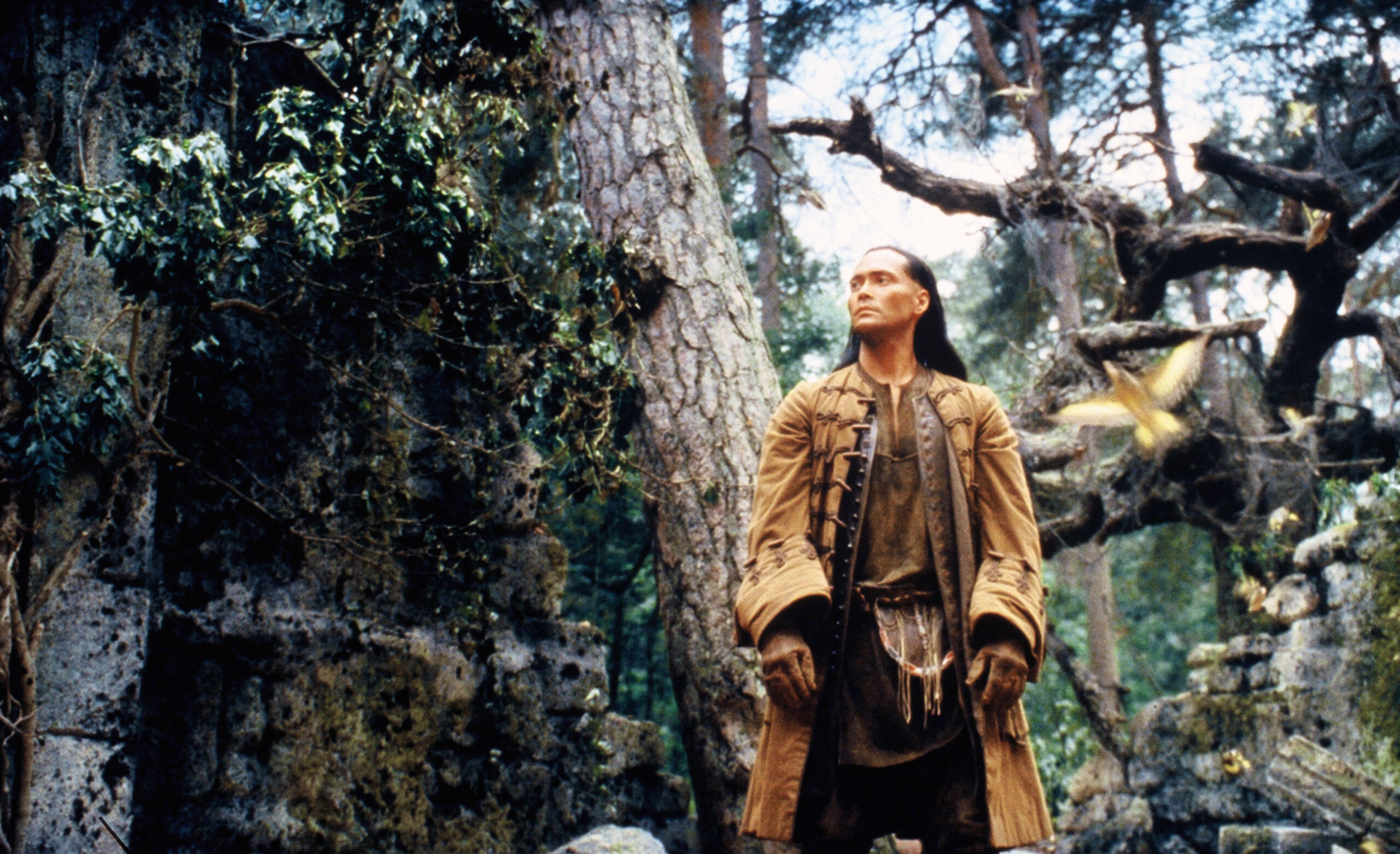
REMY: That’s quite a nice sort of circular thing—you were attracted to martial arts through the films you trained and then you end up becoming martial arts star in films.
MARK: Let me interject, please—my parents are Kung Fu teachers so there’s no getting away from it. I don’t know if I would have, on my own volition, entered martial arts tournaments but at six or seven years old they told my brother and I—I have two brothers, but they told my brother, he’s younger than me but older than our other one – they told us that we will be entering tournaments. Yeah, there is no way around it so the martial arts was in there from the beginning. Then movies and then back to martial arts. So, yes it does go full circle.
REMY: As soon as you mentioned Kung Fu and martial arts you of think of Bruce Lee and I may not be the first person to bring this up if you’d been doing a series of interviews with anyone else from the UK—the Chinese series of The Legend of Bruce Lee–what was the name of your character in that?
MARK: Oh, I play a Muay Thai Fighter, yeah? Is the one you’re talking about?
REMY: You’re a Thai boxer in it, yeah, and obviously it was in Chinese originally but on the English translation of the cast list you’re listed as ‘King Charles’… and of course a coronation is coming up in a couple of days for another ‘King Charles’.
MARK: Ah, right.
REMY: Working in Hong Kong… the film industry was huge but with the Handover of Hong Kong to Chinese rule from it being a sort of free little pocket of the rest of the world, I wonder what it was like around that period because the Handover had already happened, but it was still changing so, what are your memories of that time working there?
MARK: I’ve been to Hong Kong a couple of times but only to prepare or to do interviews. I shot a movie in Shanghai called China Strike Force and then we did the Bruce Lee series in a couple of different locations but also in China. So, I have not yet filmed anything in Hong Kong. In China I had a fantastic experience, and my wife came to visit while I was shooting China Strike Force. That was the same time I was shooting Brotherhood of the Wolf. Our schedule on Brotherhood of the Wolf went a little bit longer than expected so I had a few weeks break from Brotherhood. I flew to Shanghai and started working on China Strike Force and that’s why in that movie I have very high cut hair on the side because it was from my haircut in Brotherhood of the Wolf. I was actually going from Paris to Shanghai doing both movies at the same time towards the last month of Brotherhood.
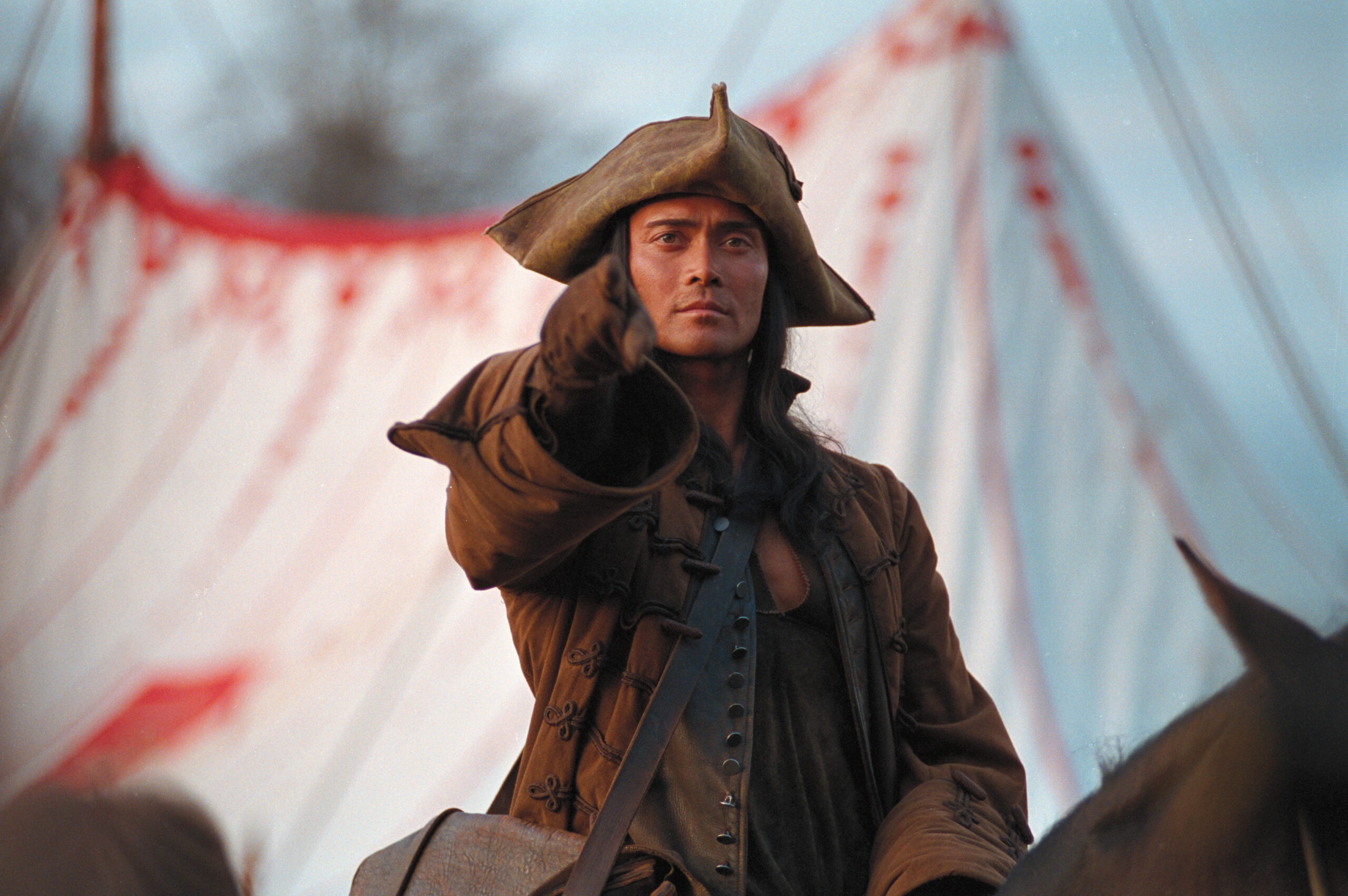
REMY: Thank you for making that connection… Now you’ve branched out into so many different things, I mean you’re a ‘top entertainer’ now never mind a martial arts star. You’re on Iron Chef—we’ve just got into the latest series in the UK. With your martial arts skills, your acting skills, you’re kind of built for the superhero genre which is really picking-up now, with the DC films and the Marvel Universe—you had a taste of that with the Agents of S.H.I.E.L.D series, again one of one of my favourites because of all its twists and turns… you’re one of the bad guys though aren’t you?
MARK: Yeah, with the telekinetic powers.
REMY: What was that experience like working on the on American TV for Marvel?
MARK: It was fun! I knew about Agents of S.H.I.E.L.D first through our kids because they used to watch the show and they loved it so, when I was invited to join the series, I got a little bit of respect from the kids. Just a little bit, you know, so that’s always helpful. It was a joy to work with really talented people and a really nice introduction into the superhero, superpower world.
REMY: I’m rushing a little bit because I’m aware that your time is valuable and I’m gonna bring it right up to date now, following on from that—the new film, Knights of the Zodiac. That fits in the superhero genre as well. But I also read that you’re a big fan of the Bruce Lee, Jet Li, old-school style…
MARK: Yes.
REMY: So, now with green-screen and motion-capture? I mean you’ve seen this change roll through, haven’t you?
MARK: Absolutely. It’s really interesting because what I’m hearing from people that have seen the newest edition of Brotherhood of the Wolf is that for them, the movie holds up and I think it’s because we did more practical stunts and action sequences than technological. I think that’s the big difference. Technology progresses so fast and so what was state-of-the-art years ago, nowadays in terms of technology is outdated, whereas practical is practical. So yes, I’ve seen a lot of changes with greenscreen and wire-work and CGI and all that but, you know I’m old and I’m old-school so, I like practical as much as possible.
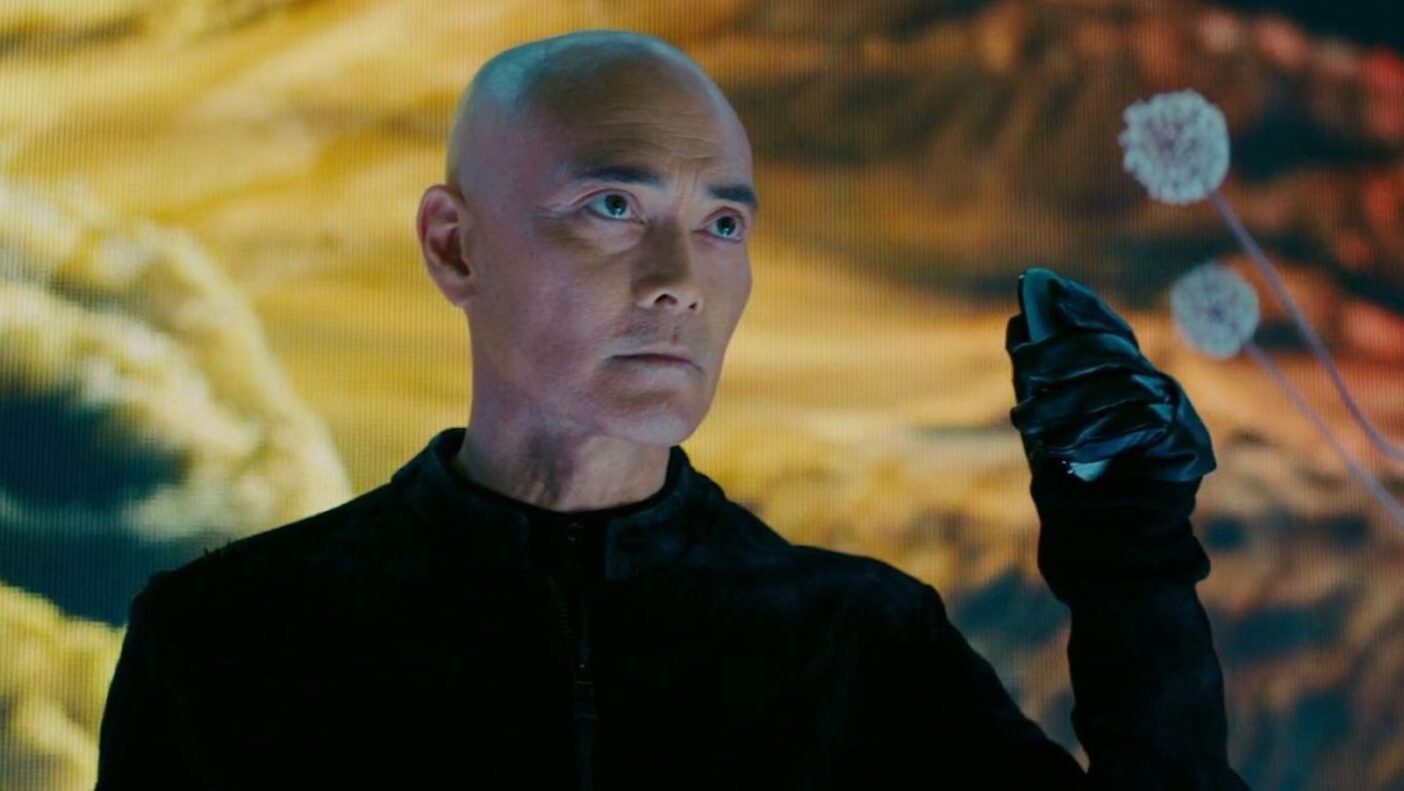
REMY: For anyone who hasn’t seen any of your movies coming to Mark Dacascos fresh, what movie would you say they should see to appreciate your martial arts prowess and which movie should they start with to see your emotional depth of character, or is it the same one?
MARK: Hmm… okay. I think in terms of martial arts, just practical, probably Drive with Kadeem Hardison and Brittany Murphy, directed by Steve Wang, because that is just wall-to-wall action and it’s us doing it Hong Kong style, taking hits. I was coming home with bruises all over the place and proudly so. Then in terms of acting range? You know, I’m very happy, I’m actually thrilled with John Wick 3 just because I got to play intense and still have a sense of humour… and respect for Mr. Wick! It’s not out yet, but I did season 3 of Warrior based on Bruce Lee’s concepts and executive produced by Shannon Lee, his daughter, and I really like the range that character had. Yeah, Warrior season three.
REMY: So, you brought up John Wick 3 then—a fellow Hawaiian?
MARK: Keanu! Keanu’s got some Hawaiian roots there.
REMY: Like yourself, he always comes across as a really nice guy. What was he like to work with, behind the scenes?
MARK: Thank you, I appreciate that. Well Keanu, I was with him for three months in New York. He’s number one on the cast list, he’s working more than anyone, and was still always so grateful, collaborative, and kind. I found him to be as nice, if not exceedingly more so than what we hear via internet and the news. He’s just wonderful, and he works so darn hard and still a nice guy, it’s crazy.
REMY: Well, I’d happily go on, but I think that’s our allotted time so, one final question and then I’m going to press the bye-bye button. Because of your connection with Iron Chef and you’re around the world experience… what’s your ultimate meal. If it was your last meal, what would you have?
MARK: I have to tell you, working on Iron Chef, they fed me really well! But also, I’m very blessed to have not just my wife but also our eldest son having gone to culinary school. So, chefs abound!
REMY: Who’s the best cook of the two?
MARK: Oh, gosh! My goodness, I’ve got Julie here staring me down so, you know the answer, Remy it’s Julie! Well honey, [to Julie] what do you think you cook more for me than anything else? I mean almost everything she makes is actually really good, but which dish do I request? She’s so good that when I try to drop weight, I’ll say that I’m not going to eat anything. Then I smell something from the kitchen and she’s made dinner for the kids and I always end up eating. What do you think my favourite meal is?
JULIE: Something healthy, we usually like a good homemade vegetable soup.
MARK: Ah, she said—and I agree—my go-to meal is one of her homemade vegetable soups, that’s my comfort food. And it’s awesome because it helps that she makes homemade croutons, too. Oh, my goodness! All that butter and it’s crunchy, oh yes!
REMY: Mark Dacascos, thank you very much. It’s been a pleasure and I look forward to seeing all the new stuff that’s coming our way. I have the new remastered Brotherhood of the Wolf Director’s Cut that I’m going to get stuck into right now…
MARK: Thank you so much, Remy.
